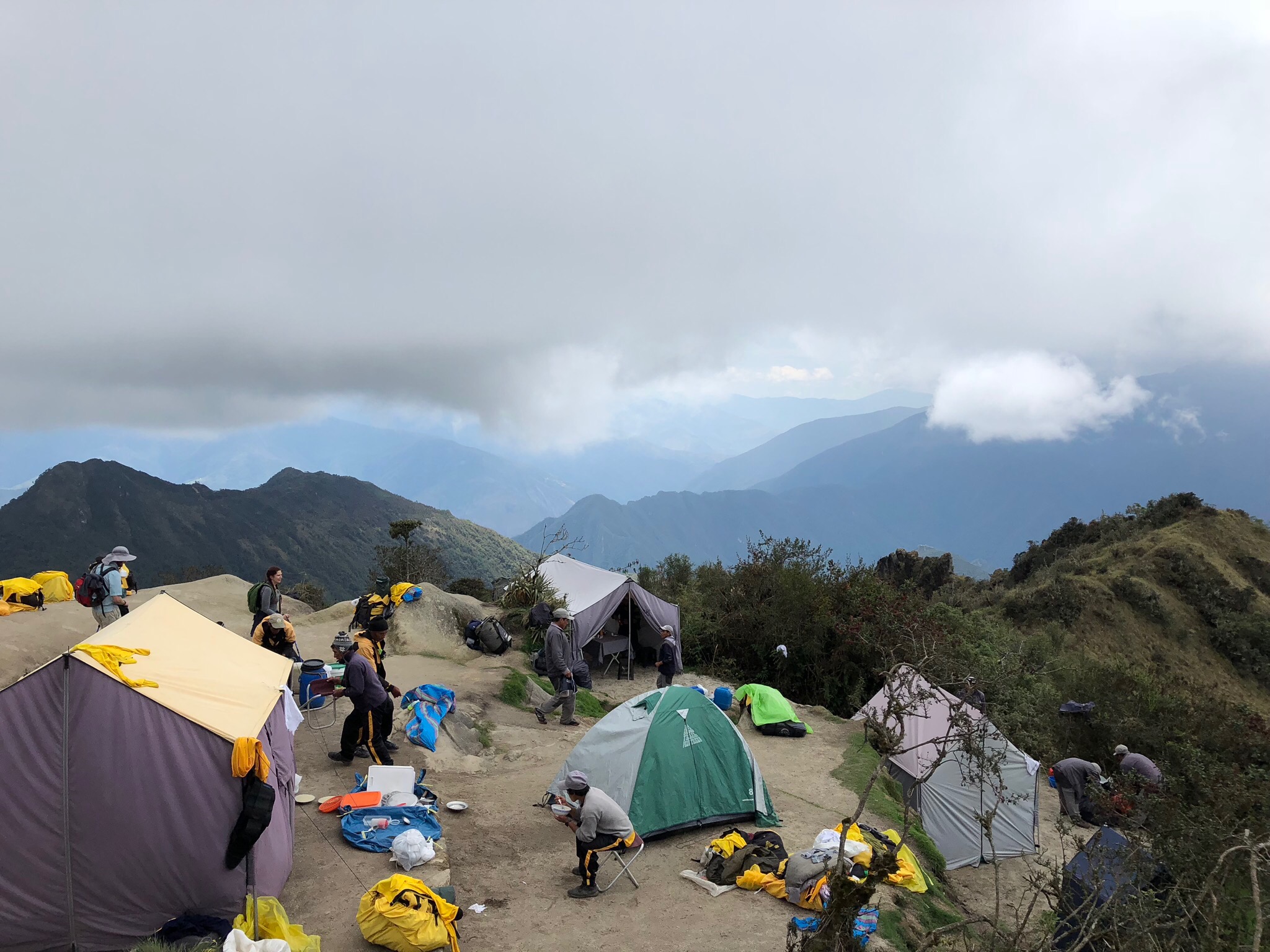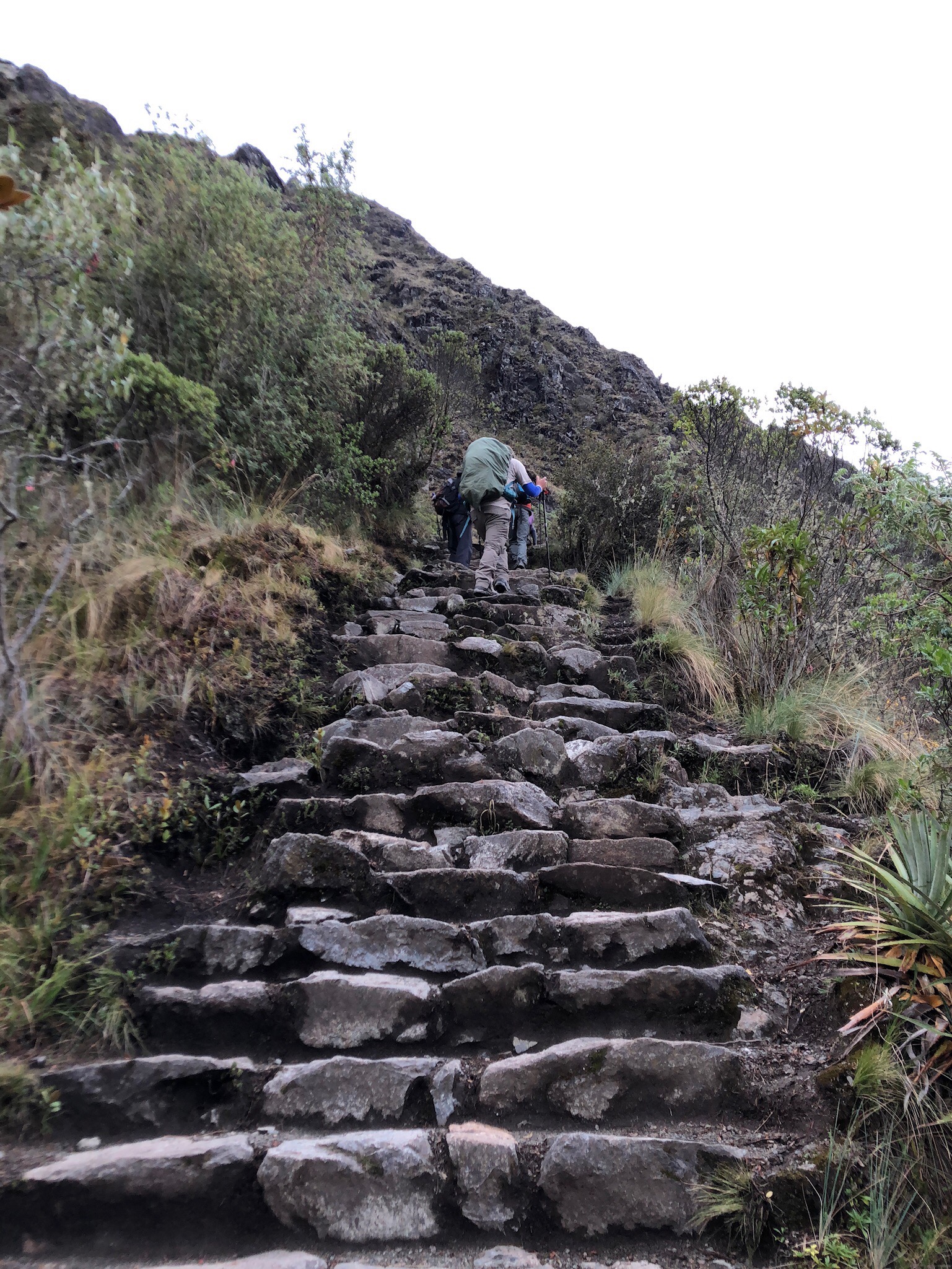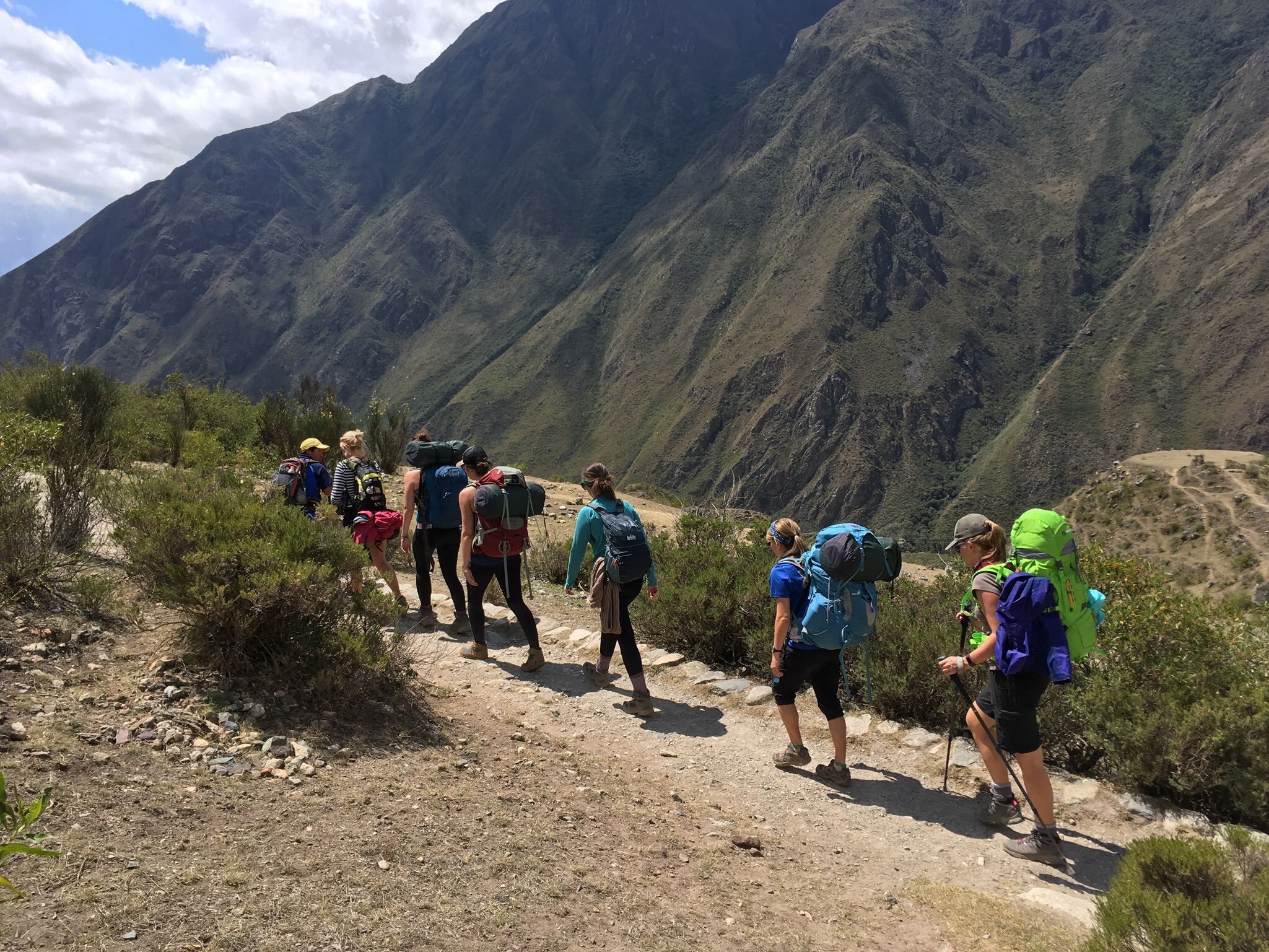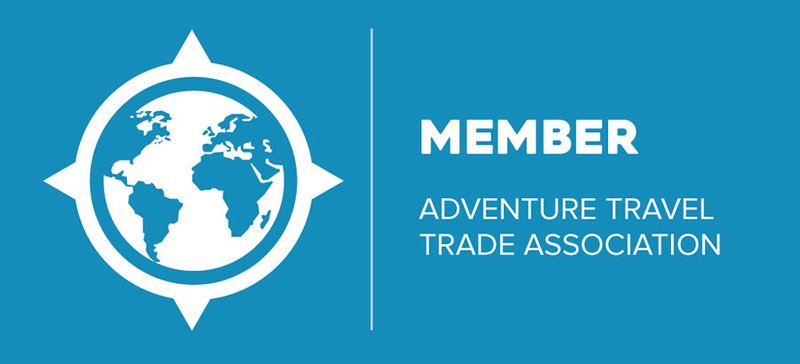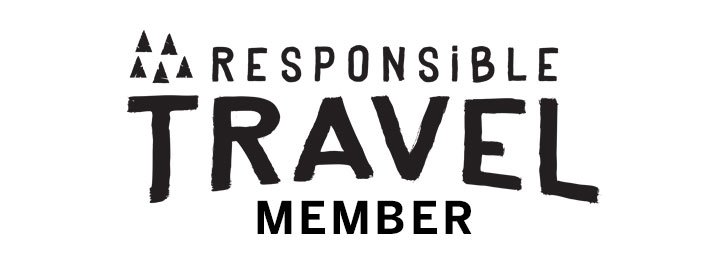Getting ready to hike the Inca trail? Handle surprises like a pro with well thought out gear and a plan-of-action for weather changes and personal comfort.
1.Layers
If you’re from the Pacific Northwest, this will be like second nature to you, but in case not: layers are your best friend. The weather can range from warm and sunny – think 70 degrees in the direct sun at high elevation – to a chilly, damp 40 degrees or lower. Since you’re carrying everything on your back, bring multi use items: durable trekking pants, comfortable base layer to sleep in (or wear underneath if it gets really cold, and consider ¾ length – girls - or shorts – guys -if you’re hiking in the warmer seasons). For the top, pack a different tank or t-shirt for each day (save your favorite for the last day – pictures!). No matter what the weather, hiking is strenuous and you will get sweaty. Top it with a base layer (which you can also sleep in), a fleece (vests work well), and a rain jacket.
Inca Trail Ready: Handle Surprises Like a Pro
2. Rain Gear
Micro climates abound in this region and weather can change by the hour. Chances are you will get wet at some point along the hike. In addition to a dependable rain jacket, get a rain cover for your backpack, and store clothes, electronics, and toiletries in plastic bags.
3. Good Footwear
Sturdy hiking boots are a must for this trek, despite the fact that you will see local porters flying down the steps in sandals. Bring warm, high quality socks (like SmartWool) and moleskin if you tend toward blisters. Also bring sandals for evenings at the camp. After hiking all day, the last thing you’ll want is to put your boots on again!
4. Healthy Snacks
Though your guides will provide hearty, healthy meals, you’ll still want fuel along the way. Stock up on Inca corn, nuts and dried fruits at the market in Cusco (get extra to share!) as well as coca leaves or candy (for altitude) and bring along your favorite protein bars. Don’t forget a water bottle – at least 16 ounces – to stay hydrated and bring along electrolytes such as Nuun tablets.
Preparing for High Altitude Sun and Sandflies on the Inca Trail
5. Bug & Sun Protection
The first day is especially exposed to the hot, direct sun. Even if you don’t typically burn, the high elevation intensifies the sunlight. Bring high SPF sunscreen, a good hat and sunglasses. There are also sandflies along the trail that produce an itchy welt, so don’t forget bugspray. Prevention is key!
6. Electronics
Needless to say, once you depart from Cusco you will be outlet-free! If your phone is your camera, bring at least 1 fully charged battery pack and turn off cellular, Bluetooth & wifi to conserve battery. Store all your electronics in plastic bags.
7. Toiletries
#1: Toilet paper and baby wipes. You will want both, and you’ll want plenty. It’s likely you won’t shower (though there is a COLD shower at one rest stop!) so pare other toiletries to the minimum: toothbrush & toothpaste, deodorant, a travel towel. Bring both a flashlight and a headlight for trips to the bathroom and around camp at night.
8. Sleep Gear
Hand warmers, a warm beanie, gloves, and thick wool socks will help hold in the heat along with a sleeping bag (rated to at least 30 degree) & a travel pillow to ensure the best rest you can get each night along the trail.
Be Ready for Anything: Health and Safety Essentials on the Inca Trail
9. Bag Gear
Bring carabineers and straps (for your sleeping mat), and a simple fold up day pack for the last day (as you’ll need to check in your big backpack while at Machu Picchu).
10. An Emergency Kit
Your guides will have oxygen and splints, but it’s important to prepare for conditions that you can address yourself. Altitude sickness can hit rapidly and is exacerbated with fatigue, so visit your doctor before the trip for a prescription to start taking the day before you arrive. Also ask for traveler’s diarrhea medication, and tame headaches or inflammation with Tylenol or ibuprofen. Band aides and salve (such as this one) are also good to have on hand. If you’re prone to motion sickness, bring Bonine or the like for the windy road from Cusco to the starting point.
11. Supplements
All of that said above, prevent maladies along the trail by some self care. Re-hydrate with electrolytes, take this reishi + cordyceps mushroom blend for fatigue and lungs, bring arnica or tiger balm for sore muscles, and boost up your immune system before the trip with zinc, elderberry and vitamin C.
12. Your Passport
Last but not least, your passport is required for entry on the Inca trail and must match exactly what you registered with. Store it in a plastic bag for extra protection.
Interested in joining Traverse on the Inca Trail? Check out our 4-day Inca trail hike option or our full 9-day itinerary with hiking and non-hiking options!



